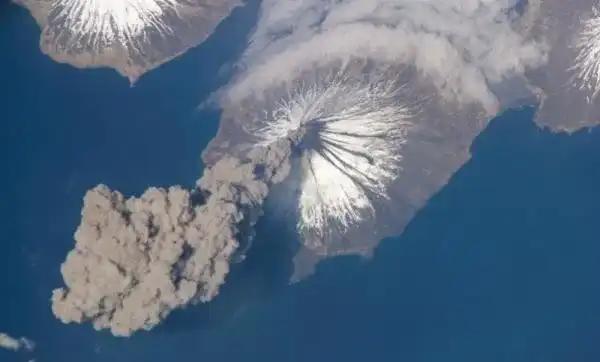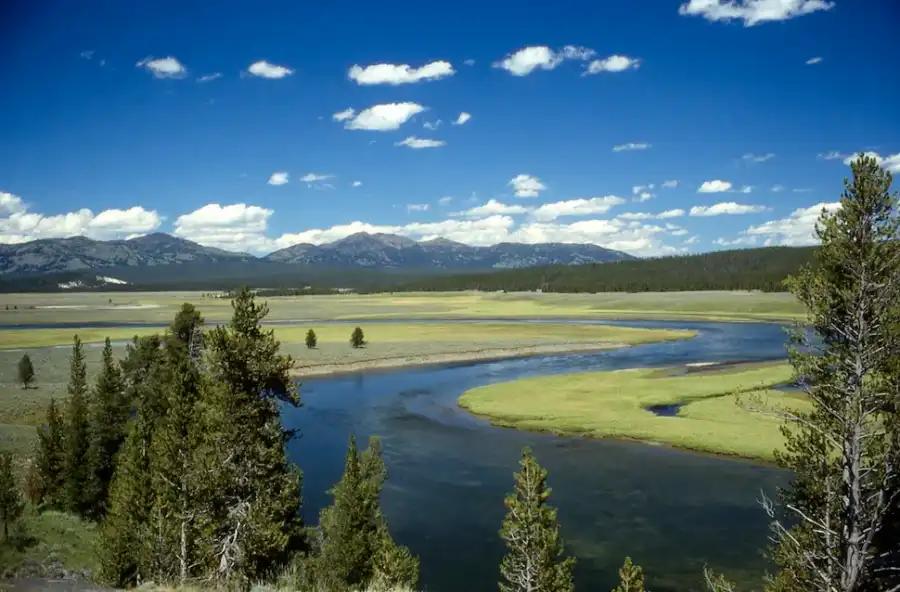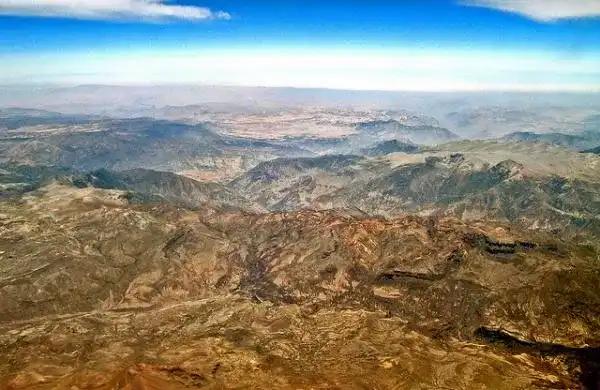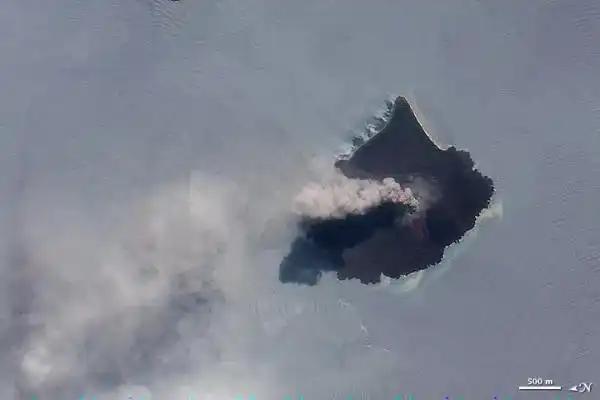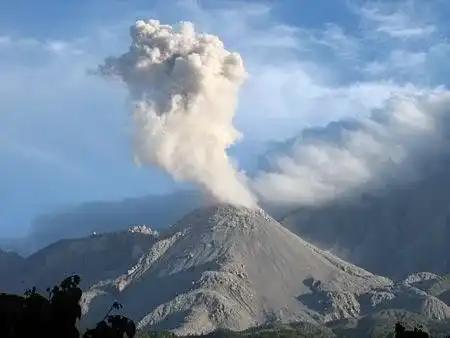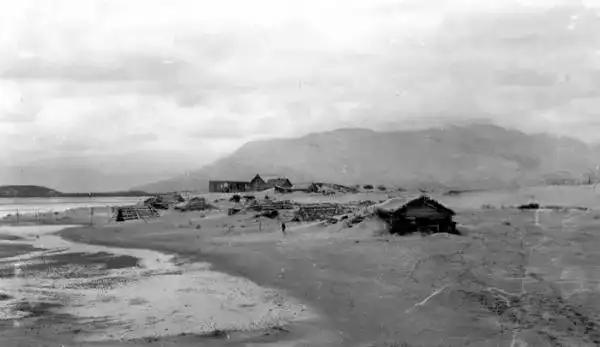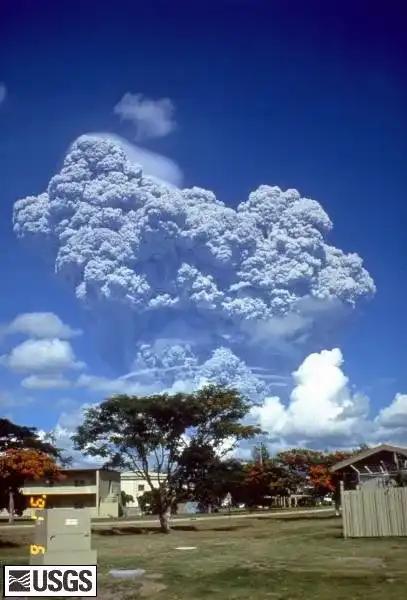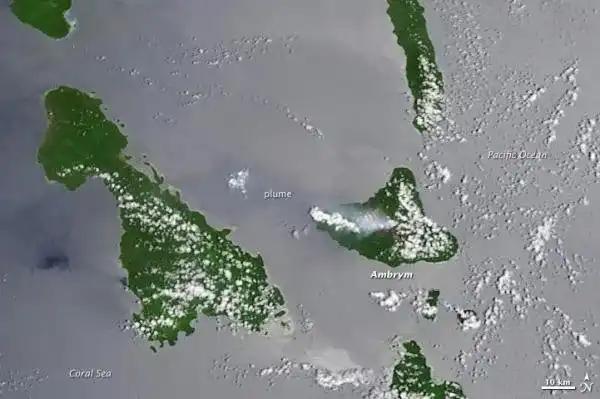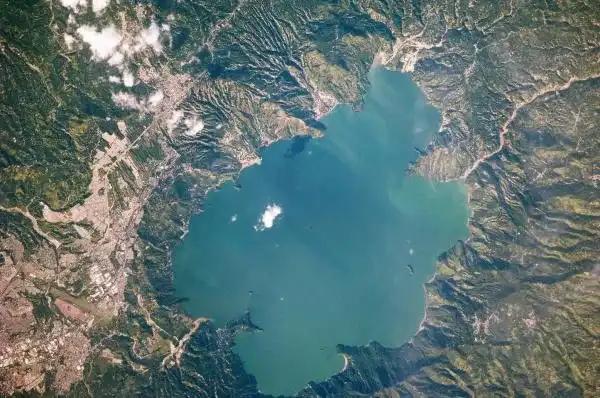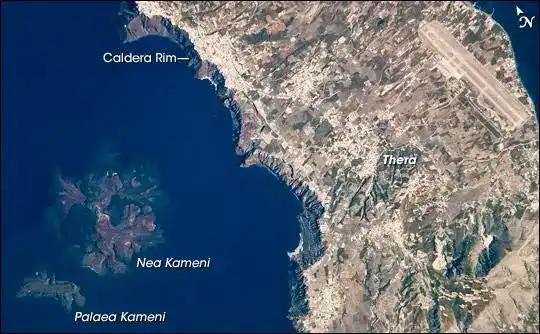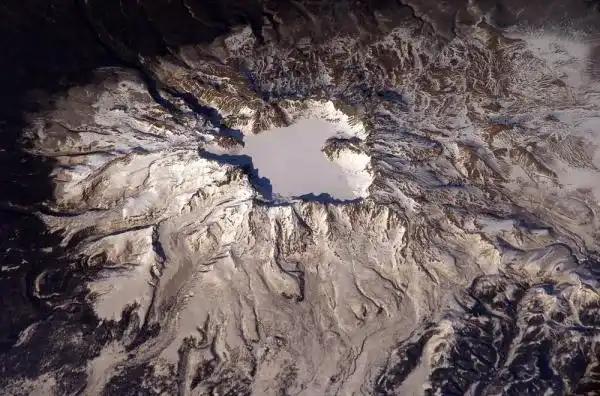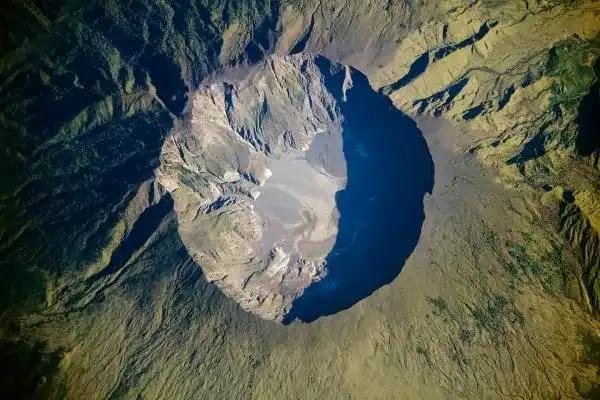Explore the World's Best Ideas
Join today and uncover 100+ curated journeys from 50+ topics. Unlock access to our mobile app with extensive features.
Volcanic eruptions
Throughout history, there have been enormous eruptions of volcanoes.
The power of these eruptions is measured using the Volcanic Explosivity Index (VEI). The classification system was developed in the 1980s. The scale goes from 1 to 8, and each succeeding VEI is 10 x greater than the last.
14
158 reads
Yellowstone eruption, 640,000 Years ago (VEI 8)
The Yellowstone National Park is an active volcano and has erupted three times at a magnitude-8, once 2.1 million years ago, again 1.2 million years ago and most recently 640,0000 years ago. Together, it expelled enough ash and lava to fill the Grand Canyon.
The last of the three supervolcano eruptions created the park's enormous crater, measuring 30 by 45 miles across (48 by 72 kilometres).
14
51 reads
Huaynaputina, 1600 (VEI 6)
Huaynaputina, in Peru, is a towering 16,000 feet (4,850 metres). The volcanic eruption sent mudflows 75 miles (120 km) away and may have affected the global climate.
After the 1600 eruption, the summers were some of the coldest in 500 years. The ash buried a 20-square-mile (50 square km) area to the mountain's west, which remains covered to this day.
13
39 reads
Krakatoa, 1883 (VEI 6)
A massive eruption took place on 26-27 April 1883 on the volcanic island arc at the subduction zone of the Indo-Australian plate.
The explosion created a tsunami whose waves reached 140 feet high (40 metres) and killed about 34,000 people. Tidal gauges over 7,000 miles (11,000 km) away on the Arabian Peninsula registered an increase in wave heights.
13
41 reads
Santa Maria Volcano, 1902 (VEI 6)
The explosion in Guatemala was one of the largest eruptions of the 20th century and left a crater of about a mile (1.5 km) across. It came after the volcano had remained silent for about 500 years.
The tree-covered volcano is one of a chain of stratovolcanoes along Guatemala's Pacific coastal plain. Since the last blast in 1922 (VEI 3), it experienced continuous activity, and in 1929, it spewed out a pyroclastic flow that may have killed about 5,000 people.
14
30 reads
Novarupta, 1912 (VEI 6)
The eruption of Novarupta was the largest volcanic explosion of the 20th century.
Three cubic miles (12.5 cubic km) of magma and ash was thrown into the air and, when it landed, covered 3,000 square miles (7,88 square km) in ash over a foot deep.
13
30 reads
Mount Pinatubo, 1991 (VEI 6)
When the stratovolcano in the Philippines erupted in 1991, it sent over one cubic mile (5 cubic km) of material into the air. As a result, a column of ash rose 22 miles (35 km) in the atmosphere and fell across the countryside.
The blast ejected millions of tons of sulfur dioxide into the air that was spread worldwide by air currents. It caused global temperatures to drop by 1 degree Fahrenheit (0.5 degrees Celsius) over the next year.
13
29 reads
Ambrym island, 50 AD (VEI 6+)
The 257-square-mile (665-square-km) volcanic island is in the southwestern Pacific Ocean.
The volcano sent a wave of hot ashes and dust down the mountain and formed a caldera (a large depression) 7.5 miles (12 km) wide. The volcano has erupted almost 50 times since 1774.
13
31 reads
Ilopango volcano, 450 AD (VEI 6+)
This volcano has only experienced two eruptions in its history. The first known eruption was huge and covered much of central and western El Salvador with pumice and ash. It destroyed the early Mayan cities as the inhabitants had to flee.
13
32 reads
Mount Thera, 1610 BC (VEI 7)
Geologists estimated that the Aegean Islands volcano Thera erupted with the energy of several hundred atomic bombs.
The Minoan civilization of the island Santorini suspected the volcano was going to blow and evacuated. The volcano disrupted the culture with tsunamis and temperature declines that changed the climate.
14
38 reads
Changbaishan volcano, 1000 AD (VEI 7)
The eruption spewed volcanic material about 750 miles (1,200 km) away and created a large caldera nearly 3 miles (4.5 km) across and a half-mile (almost 1 km) deep at the mountain's summit. It is now filled with water and a popular tourist destination.
The mountain is located on the border of China and North Korea and last erupted in 1702.
13
22 reads
Mt. Tambora, Sumbawa Island, Indonesia - 1815 (VEI 7)
The largest ever recorded explosion is that of Mount Tambora. The volcano is still active and one of the tallest peaks in the Indonesian archipelago.
In April 1815, the volcano exploded so loudly that it was heard on Sumatra Island, over 1,200 miles (1,920 km) away. The estimated death toll was 71,000 people.
13
35 reads
IDEAS CURATED BY
Joshua Roberts's ideas are part of this journey:
Learn more about scienceandnature with this collection
How to choose the right music for different tasks
The benefits of listening to music while working
How music affects productivity
Related collections
Similar ideas
4 ideas
Volcanoes, explained
nationalgeographic.com
1 idea
Active Volcanoes of Our Solar System
geology.com
1 idea
Pumice - Wikipedia
en.m.wikipedia.org
Read & Learn
20x Faster
without
deepstash
with
deepstash
with
deepstash
Personalized microlearning
—
100+ Learning Journeys
—
Access to 200,000+ ideas
—
Access to the mobile app
—
Unlimited idea saving
—
—
Unlimited history
—
—
Unlimited listening to ideas
—
—
Downloading & offline access
—
—
Supercharge your mind with one idea per day
Enter your email and spend 1 minute every day to learn something new.
I agree to receive email updates

